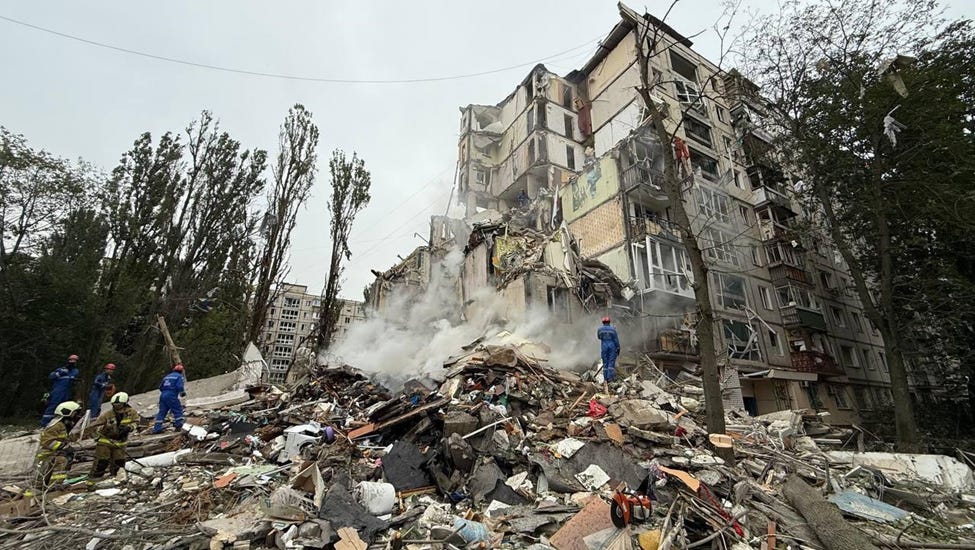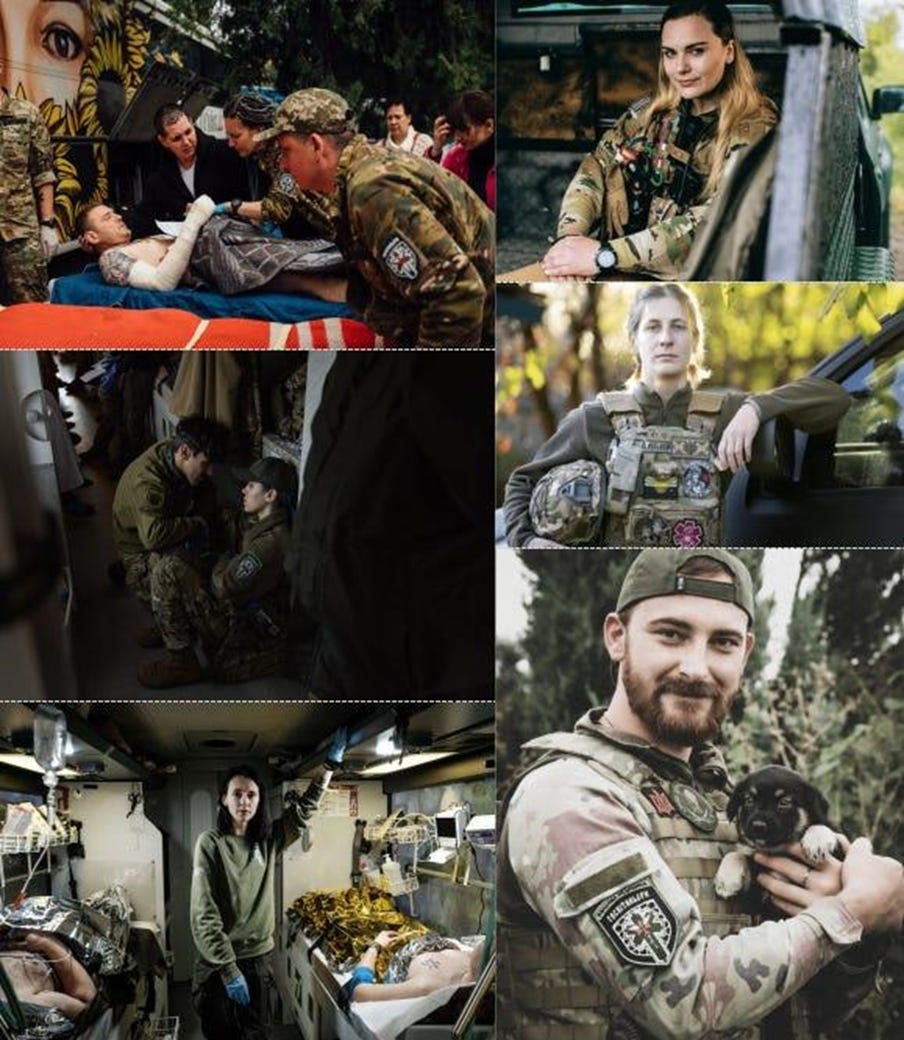Russia
A bridge in Bryansk was rigged for demolition in case Ukraine invaded. So a Ukrainian drone attacked the munitions.
600 km from Ukraine, a Russian electronics factory was hit 11 times during the night and day. The company produced mobile automated control systems for reconnaissance and command posts. An aircraft design bureau was attacked in Taganrog. Ryazan refinery was still burning in the morning after a nighttime attack. The Novkuybyshevsk refinery was also hit. Russia launches Shahed drones from Primorsko-Akhtarsk airfield and fires were detected by satellites but the extent of the damage is unknown.
Russia produces 40 million tons of gasoline a year and exported 2.51 tons through May of this year. Because of the record high domestic prices and a seasonal surge for demand, Russia is banning the export of gasoline until the end of August to any country outside of Mongolia and the Eurasian Economic Union. The biggest importers of Russian gasoline are Nigeria, Libya, Tunisia and the United Arab Emirates.
A Russian sergeant shared details of Ukrainian successes and Russian failures with his subordinates while on guard duty last September and was fined $30,000 for sharing fake news. He would have received a 5.5 year sentence and a loss of rank but his defense lawyer convinced the court that the conversation was domestic and did not influence anyone that listened to him, so he was able to retain his rank and avoid prison.
Ukraine was using its UAVs and other means to attack rail lines in occupied Zaporizhzhia since some time. Finally, the last couple of weeks it began attacking rail lines in southern Russia, too. This is of crucial importance - because the rail lines are not only ‘jugular veins’ of the Russian Armed forces, but these are very good at repairing rail lines and the supporting infrastructure. Still, any kind of delays in the transport of supplies can impact the battlefield. If the attacks on the railroads continue (we do not dare loudly dreaming about Ukraine focusing the emphasis of its strikes into Russia on related objects), then the delays will become longer with the accumulation of damage.
Tartarigami records the damage to the Russian rail networks. A traction substation converts power into voltage the train system can use. A substation in Orlovskiy was burning and temporarily out of service. Fuel tanks at a railway hub were burning, which will disrupt traffic for a while. A substation in Zhutovo was set on fire and a nearby signal control station was destroyed. Two more substations in Likhaya-Zamchalovo and Salsk were hit along with the railway station in Salsk.
An unverified claim by a hacker group said that a year-long operation penetrated Aeroflot’s network, destroyed 7,000 servers and gained control over the personal computers of employers including senior managers. Aeroflot did cancel 50 flights and delay others.
Ukrainian and Russian drones have used mobile networks as navigation becons when navigation satellite signals are jammed. Russia preemptively shut down the mobile internet in Moscow before the Victory Day parade and there was very little protest. After Ukraine's June 1st drone operations against Russian air bases, shutdowns became a regular occurrence in response to Ukrainian drone attacks. Phone calls can still be made but data cannot be transmitted. Air raid sirens might sound during a drone attack, but the information about the attack can’t be accessed. The blackouts don’t stop the drones but citizens react with resignation, annoyance and acceptance, just as they’ve reacted to tightening control of YouTube and other internet access. Dozens of regional governments say they will introduce public wireless internet services so residents can stay online when the mobile networks are shut down. What hasn’t been explained is why mobile networks have been periodically shut down in the far east, which have never been hit by long-ranged drones launched from Ukraine.
After the 8.8 magnitude earthquake, the sixth biggest on record, a Russian power plant was under distress and there was some damage. The earthquake was centered 130 km from a Russian submarine base and the facilities were damaged but there are no reports of damage to the vessels. 400 km north of the epicenter, a volcano erupted soon after.
Russia is considering putting price controls on milk, eggs, sunflower oil, carrots, tomatoes, onions, apples and other staples.
Summary of the article: A poor Russian signs up to kill Ukrainians for money. While recovering from wounds, he is robbed by police because he carries his money in a bag. Other veterans are robbed by taxi drivers working with police. Others are robbed by their unit officers. The poor soldier reports the theft by the police and they are sent to the front instead of getting prosecuted, but he doesn’t get his money back. He breaks up with his wife because he’s probably going to die, anyway, and doesn’t want to tie her down. Oh, well. He has shrapnel near his heart and if he wasn’t in the army he’d end up on the streets. Fortunately, the army takes care of him.
In Moscow, church bells are now being used to jam Ukrainian drones, including fiber optic drones that unspool their cable over 400 km. Also, avoid the fountains to be safe from the paratroopers.
***
Ukraine
A Ukrainian lawmaker said that he and many of his colleagues were pressured into supporting the law that gave the president more power of anti-corruption prosecutions. They also believed it came from the president and was coordinated with the US and European partners. Some were concerned about retribution if they backed the law restoring independence of the National Anti-Corruption Bureau and the Specialized Anti-Corruption Prosecutor’s Office but the vote passed 331-0, only ten days after the July 22 bill removed the independence of the two offices, and Zelensky signed it into law.
…one is left to wonder, what do the Ukrainian lawmakers think, to whom are they responsible? To ‘the people’ - or to the Zelensky/Yermak administration that’s then forcing them to support laws of this kind? And haven’t they got their own brains to think on their own?
Oh… see there: the same is valid for our own lawmakers, here in ‘the West’… ups…

A Ukrainian MP, heads of district and city administrations and several National Guard members have been arrested in a large-scale bribery scheme in which drones and EW equipment were bought at 30% inflated prices.
The Treaty on Conventional Armed Forces in Europe controlled the amount of weapons each nation or alliance had to prevent any side from gaining superiority over the other. Since Ukraine can no longer put their trust in outside assurances they are going to withdraw from that treaty.
A major and flight instructor in the air force contacted the Russians and provided the location, schedules and departures of F-16, Mirage 2000 and Su-24 aircraft. He also provided personal data about the pilots and tactics that were used on missions, and then he provided his opinion on the best way to bypass the defenses of the military facilities. The SBU documented his crimes and detained him while he attempted to gain more information.
Ukraine is using AI to flag Russian social media posts that might contain useful information. The posts are then reviewed by humans.
1400 experts from 44 countries took part in the Combat Medical Care Conference 2025 and Ukraine’s representatives talked about providing medical care past the ‘golden hour’ when casualties cannot be evacuated to higher level facilities. A medic from the 12th Azov Brigade was named Europe’s Best Combat Medic of the Year. He saved the life of one of his patients with a neck injury by transfusing blood that was dropped by a drone, something that is rarely done on the front lines.
In the 11 century, Benedictine monks founded a hospital in Jerusalem to care for Christian pilgrims. After the First Crusade, they were militarized as the Order of Knights of the Hospital of St. John of Jerusalem and continued in one form or another until Napoleon’s conquest of Malta in 1798. Ukraine founded the Hospitallers in 2014 as a volunteer medical organization. Since then, they’re trained 2226 medics and currently have 500 members, mostly under 30, and they operate on the front lines. As of November 2024, they evacuated over 19,000 wounded soldiers.

(Left, top to bottom) Hospitallers unload a wounded soldier they just evacuated from the front line. Two medics take a break during an evacuation. “Hera” is a poet who refused the President’s Prize for Poetry in 2013 in protest of the Yanukovych regime. She has written about her war time experiences. (Right, top to bottom) Cheka, journalist and medic, was killed three days before her 26th birthday. She had so many close calls that she decided to write a posthumous letter nine months before her death, saying in order to be free you have to attain new kinds of values. ‘Alpaca’ was fatally wounded on the way to evacuate an injured soldier. Her fellow Hospitallers remember her as tirelessly volunteering and organizing, and having countless plans for the future. ‘Liutyi’ remembers driving with Cheka and a special operations soldier named Serhii. They were going to a location where no one wanted to drive. Each grabbed a banana for the trip and Liutyi told Serhii to hold onto it tightly. Serhii lost his foot after stepping on a mine. Lying naked on the operating table, he called out, “Don’t take my banana!” It was his symbol for holding onto life. He recovered and is now serving with a prosthetic foot.
***
This text is published with the permission of the author. First published here.